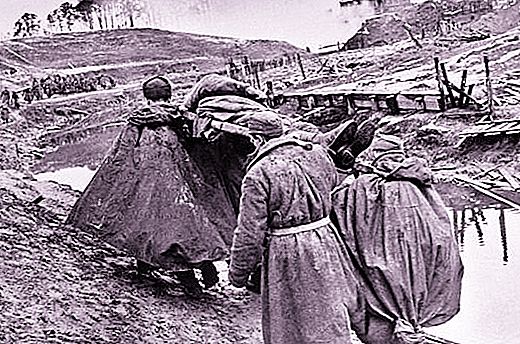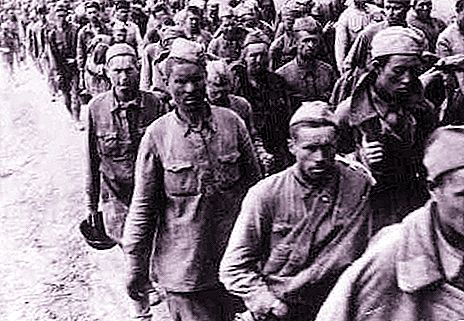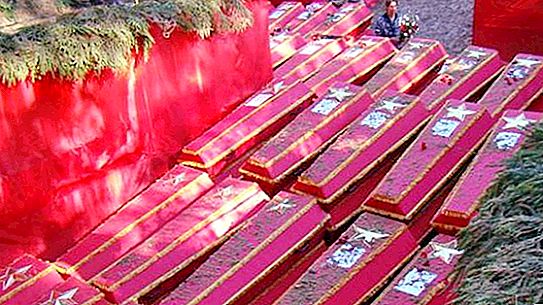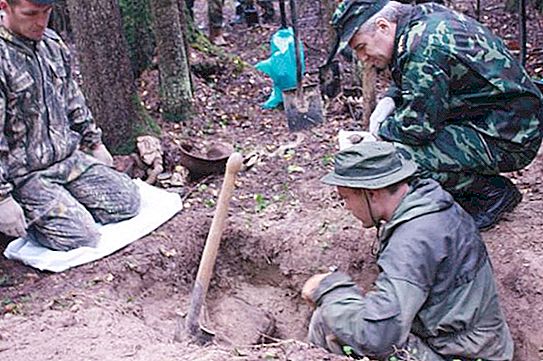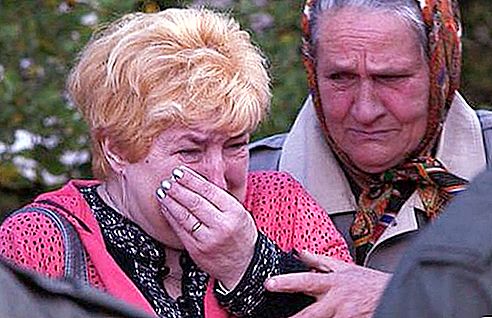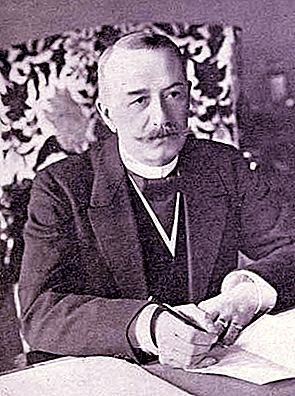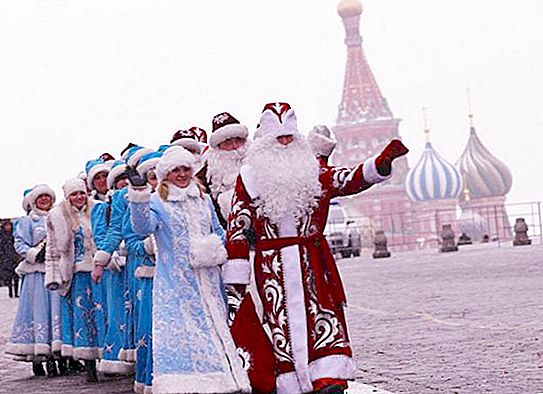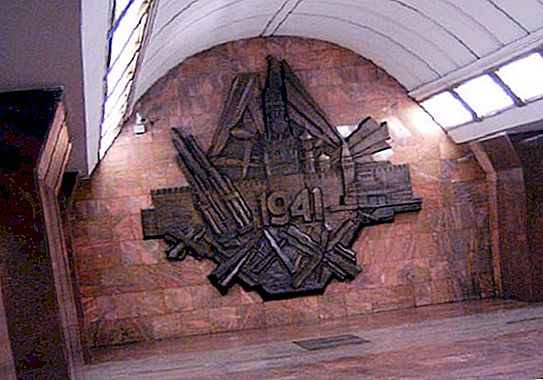“Missing” - many received notifications with such a phrase during the war years. There were millions of them, and the fate of these defenders of the Motherland remained unknown for a long time. In most cases, it remains unknown today, but there is still some progress in clarifying the circumstances of the disappearance of soldiers. Several circumstances contribute to this. Firstly, new technological capabilities have appeared to automate the search for the right documents. Secondly, useful and necessary work is carried out by search teams. Thirdly, the archives of the Ministry of Defense have become more accessible. But ordinary citizens today in the vast majority of cases do not know where to look for missing persons in the Second World War. This article may help someone know the fate of loved ones.
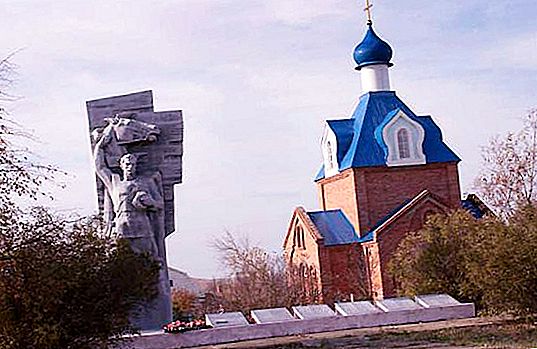
Difficulty finding
In addition to factors contributing to success, there are those that make it difficult to find missing persons in World War II. Too much time has passed, and there is less and less material evidence of events. There are no more people capable of confirming this or that fact. In addition, missing persons were considered suspicious during and after the war. It was believed that a soldier or officer could be captured, which in those years was considered almost a betrayal. A soldier of the Red Army could go over to the side of the enemy, and this happened, unfortunately, often. The fate of the traitors is mostly known. The collaborators, caught and identified, were tried and either executed or received long sentences. Others took refuge in distant lands. Those of them who have survived to this day usually do not want to be found.
Where to search for prisoners of war missing in WWII
The fate of many Soviet prisoners of war after the war developed in different ways. The Stalinist punitive machine was pardoned to some, and they safely returned home, although for the rest of their lives they did not feel themselves as full-fledged veterans and themselves felt some kind of guilt before the “normal” participants in the hostilities. Others had a long way to go to places of detention, camps and prisons, where they most often ended up on unsubstantiated charges. A certain number of soldiers released from captivity appeared in the American, French or English zones of occupation. These, as a rule, were issued by the allies to the Soviet troops, but there were exceptions. For the most part, our warriors wanted to go home to their families, but rare realists understood what awaited them and asked for asylum. Not all of them were traitors - many simply did not want to cut the forest in the Far North or dig channels. In some cases, they are on their own, contacting relatives and even unsubscribe to them foreign inheritances. However, in this case, the search for missing persons in WWII 1941-1945 can be difficult, especially if such a former prisoner changed his name and does not want to remember his homeland. Well, people are different, like their fates, and it’s hard to condemn those who ate bitter bread in a foreign land.
Documentary footprint
However, in the vast majority of cases, the situation was much simpler and more tragic. In the initial period of the war, soldiers simply died in unknown cauldrons, sometimes together with their commanders, and there was no one to compile reports of irretrievable losses. Sometimes there were no bodies left, or it was impossible to identify the remains. It would seem, where to look for the missing in the Second World War with such a mess?
But there always remains one thread, pulling for which, you can at least somehow unravel the story of the person of interest. The fact is that any person, and especially a military man, leaves behind a “paper” trace. His whole life is accompanied by a documentary circulation: clothing and food certificates are issued for a soldier or officer, he is included in the lists of personnel. In the event of a wound in the hospital, a medical record is issued for the fighter. Here's the answer to the question of where to look for the missing. WWII is long over, and documents are stored. Where? In the Central Archive of the Ministry of Defense, in Podolsk.
Central Archive of Moscow Region
The application process itself is simple, and it’s free. For the search for missing persons in the Great Patriotic War of 1941-1945, the archives of the Moscow Region do not require money, and they bear the costs of sending the answer. In order to make a request, you need to collect as much personal information as possible about who to find. The more it is, the Central Asian workers will find it easier to decide where to look for missing persons in the Great Patriotic War, in which storage and on what shelf the cherished document can lie.
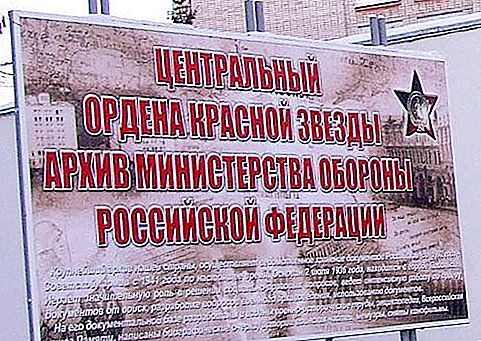
First of all, the last name, first name and patronymic, place and date of birth, information about where he was called from, where he was sent, and when is needed. If any documentary evidence, notices or even personal letters have been preserved, then if possible they should be attached (copies). Information about government awards, incentives, injuries, and any other related to service in the Armed Forces of the USSR will also not be superfluous. If the type of troops in which the missing person served, the military unit number and rank is known, then this should be reported. In general, everything that is possible, but only reliable. It remains to state all this on paper, send a letter to the address of the Archive and wait for an answer. It will not be soon, but certainly. People working in Central Asia are obligatory and responsible.
Foreign archives
The search for missing persons in the Great Patriotic War of 1941-1945 with a negative answer from Podolsk should be continued abroad. Where only the roads of Soviet warriors languishing in captivity did not drive. Their traces are found in Hungary, Italy, Poland, Romania, Austria, Holland, Norway and, of course, in Germany. The Germans kept the documentation pedantically, for each prisoner a card was issued, equipped with a photograph and personal data, and if the documents were not damaged during the hostilities or bombings, an answer will be found. The information concerns not only prisoners of war, but also those who were involved in forced labor. The search for missing persons in the Second World War sometimes allows you to find out about the heroic behavior of a relative in a concentration camp, and if not, then at least clarity will be brought into his fate.
Request response content
The answer is usually concise. Archives report on the locality in the area of which a Red or Soviet Army soldier took his last battle. Information is confirmed about the place of pre-war residence, the date from which the soldier is removed from all types of allowances, and the place of his burial. This is due to the fact that the search for missing persons in the Great Patriotic War by last name, and even by first name and patronymic can lead to mixed results. Additional confirmation may be the data of relatives to whom the notice should have been sent. If the burial place is indicated as unknown, then usually it is a mass grave located near the specified settlement. It is important to remember that loss reports were often compiled at the battlefield, and they were not written in very legible handwriting. The search for missing persons in the Great Patriotic War of 1941-1945 may be difficult due to the fact that the letter “a” resembles “about”, or something like that.
Search engines
In recent decades, search traffic has become widespread. Enthusiasts who want to clarify the fate of the millions of soldiers who have laid their heads for their homeland are doing a noble job - they find the remains of the fallen soldiers, determine by many signs their belonging to one or another part, and do everything to find out their names. Nobody knows better than these people where to look for the missing in WWII. In the forests near Yelnya, in the swamps of the Leningrad Region, near Rzhev, where there were fierce battles, they conduct careful excavations, passing their defenders with military honors to their native land. Search groups send information to government officials and the military, who update their databases.

